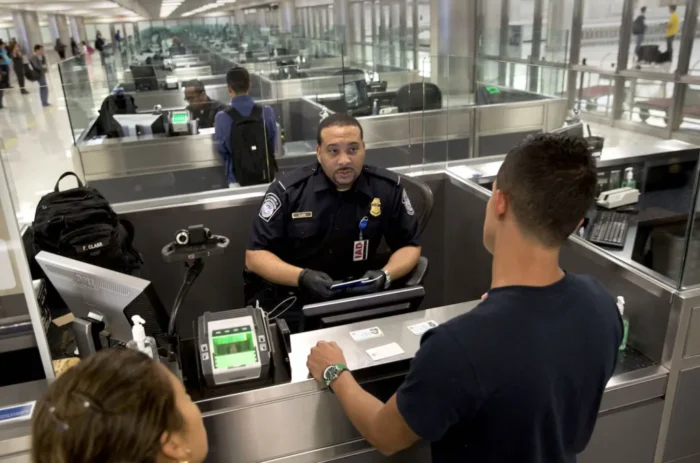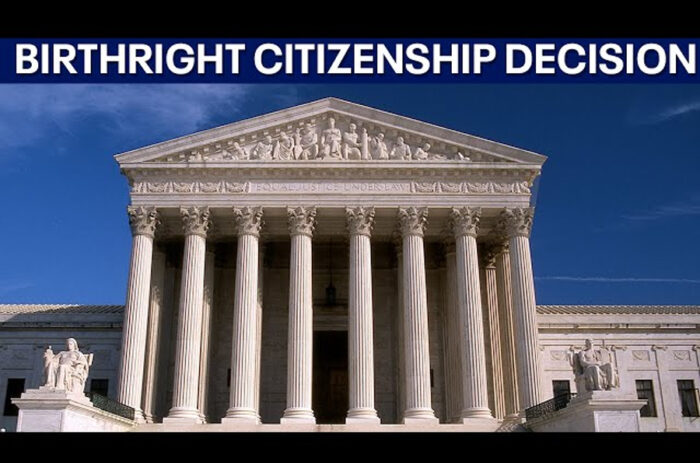redo Jump to...
print Print...
NOTE: The Maryland Public Service Commission announced in February that customers who wish to opt out of the installation of a smart meter – a two-way communication device which transmits energy usage data wirelessly – will have to pay an up-front fee, followed by monthly charges, to compensate power companies for operation costs.
(by Margie Hyslop, Maryland Gazette) – Some Pepco* customers are alarmed by Maryland regulators’ decision to let utilities charge them extra fees totaling more than $200 in the first year for refusing to have a smart meter installed on their homes. [*The Potomac Electric Power Company, also known as Pepco, is an investor-owned utility supplying electric power to the city of Washington, D.C., and to surrounding communities in Maryland.]
 Pepco, Baltimore Gas and Electric (BGE), Delmarva Power and Light (DPL) and Southern Maryland Electric Cooperative (SMECO) are installing the digital meters, which transmit usage and other data wirelessly.
Pepco, Baltimore Gas and Electric (BGE), Delmarva Power and Light (DPL) and Southern Maryland Electric Cooperative (SMECO) are installing the digital meters, which transmit usage and other data wirelessly.
The Maryland Public Service Commission issued an order late February allowing those utilities to charge household and small commercial customers a one-time $75 fee, plus monthly fees, for opting not to have one of the “advanced” meters.
The meters have been controversial because of concerns over low-level radiation they emit, data security and privacy, and reports that some meter models have overheated and caused fires.
The service commission set monthly fees at $14 for Pepco customers, $11 for BGE customers and $17 for SMECO and DPL customers.
According to the commission, Pepco and DPL (both owned by Pepco Holdings) had proposed charging customers $58 per month, BGE had proposed charging $15 per month and SMECO had proposed charging customers $34.94 per month [to keep their current meters].
All four utilities had proposed an up-front fee of about $100 for [customers who] refuse [to have] the smart meters [installed], according to a commission announcement of the decision.
Opt-out customers are to be billed on the first billing cycle after July 1 and may pay the up-front $75 fee in three monthly installments.
Customers who opted not to have a smart meter installed while they waited for the commission’s decision, are to be notified of the decision within 60 days by their utility, according to the Feb. 26 order.
Utilities are allowed to bill those customers who don’t withdraw their temporary opt-out requests. The opt-out requests were first allowed by the commission under a May 2012 order. …
Last year Pepco sent installers to replace some analog meters with smart meters without notifying those customers in advance by letter, as the commission had ordered.
Pepco officials said Wednesday the utility had not counted how many customers have withdrawn their opt-out requests since the commission announced the fees Feb. 26. “It’s too early to have any official numbers as we are still working through how to handle the new process,” Pepco spokesman Bob Hainey wrote in an emailed response.
Pepco delivers electricity to about 540,000 customers in Montgomery and Prince George’s counties and to 259,000 customers throughout Washington, D.C.
From Montgomery Pepco has gotten 1,796 opt-out requests and from Prince George’s 439 and 99 percent of Pepco’s smart meter installation in the Maryland counties is complete, Hainey reported.
Utilities have said it costs more to maintain two billing systems and to continue sending people out to read meters. They also said some operational efficiencies are lost when customers don’t use smart meters.
The Public Service Commission (PSC) order calls for utilities to track and report costs incurred by serving customers without smart meters so that the commission can review and adjust the charges if warranted. Since the order was issued, the Commission estimates that it has received several dozen phone calls, e-mails, and letters from consumers, some voicing opposition and some seeking more information about the order, spokeswoman Regina Davis said.
PSC Commissioner Harold Williams wrote a dissenting opinion in which he noted that Vermont did not let utilities charge opt-out fees. Actual costs should be assessed when they are known and considered in rate hearings, Williams wrote.
Other commissioners said their decision is similar those made in other states, including California, Florida and Illinois.
Smart meters have been touted for their ability to notify utilities of outages and for the potential to help customers track and manage their electricity use.
So far the meters’ automated features have helped Pepco restore service faster and reduced the need to dispatch restoration crews by 10 percent, Hainey said.
Legislation is being considered in the Maryland Senate and House that would prohibit utilities from charging fees based on a customer’s choice of a smart or analog meter and that would prohibit disclosing data to a third party without the customer’s written consent – except for billing and to support “customer choice” – and would penalize utilities for violations.
According to the U.S. Energy Information Administration, 37 million smart meters had been installed in the United States by 2011.
Published at The Gazette on March 6. Reprinted here for educational purposes only. May not be reproduced on other websites without permission from The Gazette (Maryland). Visit the website at Gazette .net.
Questions
1. There are approximately 130 million households in the U.S. How many smart meters had been installed in the U.S. by 2011?
2. What are smart meters?
3. What are the pros and cons of installing smart meters in every home?
4. a) Why do customers who wish to opt out of Maryland electric companies’ smart meter installation have to pay a fine?
b) How much do customers have to pay if they don’t want a smart meter installed in their home?
5. a) What is the Maryland Public Service Commission? (see “Background” below the questions)
b) Why does MPSC commissioner Harold Williams oppose charging customers to opt-out of the smart meter installation?
6. a) The reporter writes in para. 21: “Legislation is being considered in the Maryland Senate and House that would prohibit utilities from charging fees based on a customer’s choice of a smart or analog meter and that would prohibit disclosing data to a third party without the customer’s written consent – except for billing and to support ‘customer choice’ – and would penalize utilities for violations.” Do you support this legislation? Explain your answer.
b) If given a choice, would you want a smart meter in your house? Why or why not?
c) Ask a parent the same question.
7. Read the “Background” below from a group opposed to smart meters. Do you think this group expresses legitimate concerns? Explain your answer.
Background
The Maryland Public Service Commission (PSC):
- The Maryland Public Service Commission (PSC) is an independent administrative agency within the Maryland state government which regulates public utilities and certain taxi cab and other passenger services in Maryland.
- Similar to other state Public Utilities Commissions, the Maryland PSC regulates and sets tariff rates for natural gas, electricity distribution, local telephone, water and sewage disposal companies.
- The PSC also sets the tariff rates for pilot services for vessels and privately owned toll bridges, approves the construction of electric generating plants and overhead transmission lines with a voltage above 69 kV, and licenses retail natural gas and electricity suppliers. (from wikipedia)
Customers throughout Maryland have objected to the installation of smart meters, citing health and privacy concerns. The Maryland Smart Meter Awareness group argues that meters are linked to higher bills, appliance burnouts, house fires, interruption of wireless devices and health problems, according to its website marylandsmartmeterawareness.org.
List of Smart Meter and Smart Grid Concerns (from marylandsmartmeterawareness.org)
- Health Concerns
- Privacy Concerns
- National Security Concerns
- Safety Concerns
- Rate Increase Concerns
- Effects on our Planet’s Ecosystem
Marylandsmartmeterawareness.org opposes the installation of smart meters in homes. The following is from the website:
What a smart meter does:
- Measures how much electricity you use and then sends hourly meter read data to your electric company.
- Uses microwave radio frequency radiation to transmit this information.
- Allows the utility to send radio frequency radiation to your meter to remotely start or stop service.
In the next two sections below ask yourself if the benefits claimed (section 1) are worth the costs to you (section 2)
Why your utility wants you to have one:
- To repair outages more rapidly
- To save on the cost of meter readers
- To turn off your power remotely if you are late paying your bill
- To help you become more aware of how and when you are using electricity in the hope that this will encourage you to conserve energy
- To reward you for shifting some of your consumption to off-peak hours or in the future, possibly change your consumption habits
- To be able to turn off appliances in your home during periods of peak consumption such as your washer, dryer, dish washer etc.
- Programs of this sort would presumably be and so you would be given some relief from the jacked up rates if you agreed to participate (rebates)
Note that the benefits claimed above are mostly benefits to the utility which may or may not pass savings on to us.
Note also that nothing prevents us from conserving energy now. Common sense tells us to turn off appliances and lights when they are not needed. Do we need a computer display to show us that we left the TV on in a room where nobody is watching?
Keep in mind also that the federal government, through the stimulus passed in 2009, has made it very profitable for the utilities to blanket the nation with these meters. AND there is no law mandating the installation.
Why you may not want to have one on your home:
- You may not want your utility, marketing companies, hackers, and possibly would-be burglars to know everything that goes on inside your home. You have a right to privacy about when you are at home, when you are asleep, when you preparing meals, how many showers you take in a day, when you watch TV and when you are using your computer.
- You may not want to expose yourself, your children or the elderly, 24/7 to electromagnetic radiation when the possible health effects of such exposure are still being hotly debated among experts in the health sciences. Yes, most of us use microwave ovens and cell phones, but these exposures are for brief periods and they are voluntary.
- You may not want to give up your right to decide what appliances you will use and when you will use them.
- You may not want to see your monthly electric bill skyrocket as has so often been the case where these meters have been installed.
Read more at: marylandsmartmeterawareness.org/wp-content/uploads/2012/11/WhatIsaSmartMeterBrochure.pdf
Daily “Answers” emails are provided for Daily News Articles, Tuesday’s World Events and Friday’s News Quiz.



